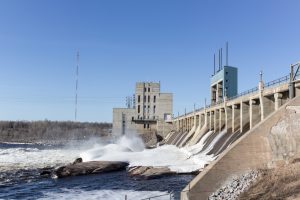
The House approved legislation on Wednesday that U.S. Rep. Cathy McMorris Rodgers (R-WA) introduced to overhaul the cumbersome licensing process for renewable hydropower projects which can span 10 years or longer in some cases.
“It’s clean, it’s renewable, it’s reliable and it’s one of the reasons why we in Eastern Washington enjoy some of the most affordable electricity rates in America,” McMorris Rodgers said.
Passage of the bill, H.R. 3043, the Hydropower Policy Modernization Act of 2017, was hailed by U.S. Rep. Greg Walden (R-OR), the chairman of the House Energy and Commerce Committee, as a step to promote hydropower development, create jobs and ensure that customers have access to clean, affordable energy.
The measure would improve accountability and collaboration between federal and state agencies to eliminate duplicative efforts. To achieve that goal, the Federal Energy Regulatory Commission (FERC) would become the lead agency for coordinating all federal authorizations for hydropower projects. FERC would streamline the relicensing process by being allowed to extend preliminary four-year permits for hydropower projects, and it would be required to create a process for scheduling licensing reviews.
McMorris Rodgers noted the importance of hydropower in the Pacific Northwest.
“This bill won’t change outcomes or environmental standards. Instead, it will speed up the relicensing process and save time and money,” she said. “Providing relief from these costly and time-consuming regulatory processes will encourage investment in hydropower so we can continue to support this clean energy in our region.”
The legislation would also modify the definition of “renewable energy” under federal law to ensure that hydroelectric energy is included along with other types of clean energy like solar and wind.
Spokane, Washington-based energy company Avista Corp. expressed support for McMorris Rodgers’ bill. “… It gives licensees the incentive to invest in technological upgrades to a licensed project and to undertake environmental measures beyond the requirements of the existing license – all in an environmentally-sensitive manner.”
While licensing a new natural gas facility in the United States takes 18 months on average, licensing a new hydropower project or relicensing an existing hydropower facility takes many years longer.
“The supporters of this bill, such as labor and industry organizations, recognize the vital role it will play in supporting job growth, local economic development, and providing much-needed reforms to the licensing process,” Walden said.
Untapped opportunities for hydropower could be used to avoid 5.6 billion metric tons of carbon dioxide emissions, resulting in $209 million in avoided damages and the creation of 195,000 jobs, according to a 2016 Department of Energy report.
“Hydropower generates nearly 43 percent of electricity in Oregon and this dependable baseload power has helped drive the development of everything from value-added agriculture processing to data centers, creating jobs along the Columbia River and throughout Oregon,” Walden added.
Data from the U.S. Energy Information Administration show that nationwide, hydropower accounted for approximately 6.5 percent of total utility-scale electricity generation in 2016.



